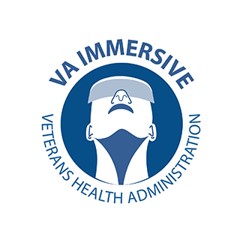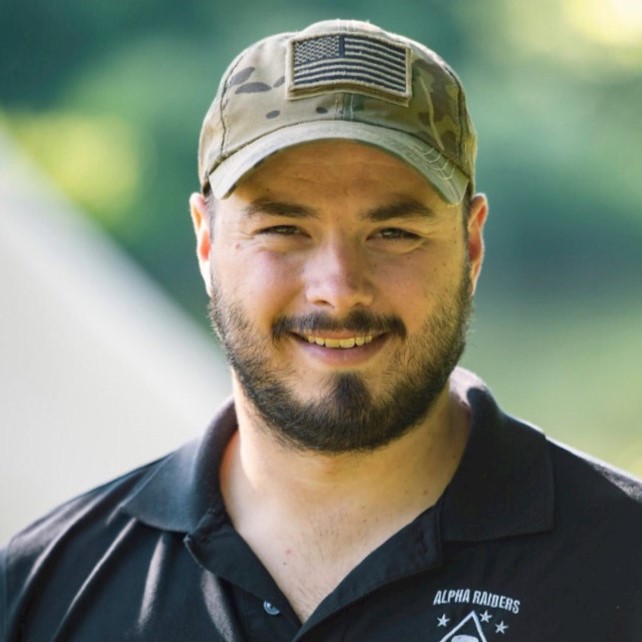
VA Immersive: Defining a New (VR) Reality in Healthcare

We welcome you to join us virtually (via Zoom) for our December eWEAR Seminar.
Date: Monday, December 18th from 10:00 am to 11:00 am PST
Location: Zoom
Registration: Please click here to register
Overview: VA Immersive is defining a new reality in Veteran healthcare through Virtual Reality (VR) and Augmented Reality (AR), reinforcing why Veterans and staff choose VA. Together with VISNs, VA facility leaders, front line staff VA Immersive is spearheading a transformative shift in Veteran healthcare, leveraging immersive technologies to redefine the healthcare experience. The deployment of over 3000 VR headsets across 165+ medical centers reflect our commitment to providing Veterans with optimal care through non-pharmaceutical solutions. Read More
VR in Healthcare
- The projected growth of immersive technology in healthcare is anticipated to rise from $3.11B (2023) to $25.22B (2030). This growth has led VA healthcare professionals to believe that the technology has expanded training and education opportunities, allowing patients to welcome technology into their care.
- VA recognizes that immersive technology can transform care delivery and experience, and VA is focused on expanding its application and adding to evidence-based implementation.
- VA Immersive offers Veterans an engaging, non-pharmaceutical approach to care, while also advancing VA’s commitment to connecting Veterans to the soonest and best care.
Clinical Implementation Across VA Medical Centers and Clinics
- Chronic Pain Management: RelieVRx, an FDA-authorized VR experience, represents a groundbreaking initiative for at-home chronic low back pain management, piloted across 15 sites.
- Pain and Suicide Prevention: A 60-site pilot, in collaboration with Penumbra Inc., deploys 300 VR headsets to positively impact chronic pain and suicidality.
- Post Traumatic Stress Disorder (PTSD) and Creative Arts Therapy: We use VR to aid Veterans in coping with PTSD and offer VR-based creative arts therapy experiences at 73 sites, promoting individualized well-being.
The Future of VA Immersive: Immersive technology is not a distant vision for us; it is the present reality. We envision a future where personalized content, biometric tracking, and standardized, scalable VR/AR applications enhance Veteran care. Incorporating biometric data aims to provide more tailored care, and collaboration with industry and academia ensures diverse and inclusive content development.
How We Advance VA Immersive: Our commitment to advancing immersive technology is unwavering. As the largest integrated healthcare system in the nation, we are positioned to scale VR/AR technology through partnerships with industry, government, Veteran Service Organizations, and academia.
Our Strategic Alignment: At VA, we seamlessly align VA Immersive with our strategic priorities. We support employee well-being, enhance access to optimal care, address military environmental exposures, contribute to high reliability, and foster support for Veterans’ whole health, caregivers, and survivors.

Anne Bailey, PharmD, BPCS
Executive Director, Strategic Initiatives Lab at U.S. Department of Veterans Affairs
Bio
Caitlin Rawlins, MSN, RN
Deputy Director, Clinical Tech Innovation, VA Immersive Program Manager at U.S. Department of Veterans Affairs
Bio
Evan Davis, CTRS
VA Recreational Therapist; VA Immersive Project Manager, U.S. Marine Veteran
Bio
Walter Greenleaf, PhD (Co-Host)
Neuroscientist, Expert in Medical Virtual Reality Technology, Advisor to eWEAR at Stanford University
BioWalter Greenleaf is a neuroscientist and a medical technology developer working at Stanford University. With over three decades of research and development experience, Walter is considered a leading authority in the field of digital medicine and medical virtual reality technology.
Research Focus: Walter’s current research focus is on developing computer-supported clinical products, with a specific emphasis on applying virtual reality and digital health technology to address difficult problems in behavioral and physical medicine such as Post-traumatic Stress, Anxiety Disorders, Depression, Stroke, Addictions, and Autism Spectrum Disorder. He has served as the Principal Investigator for research projects funded by the NIH and by NASA.
Academic Positions: Walter is currently a Visiting Scholar at Stanford University’s Virtual Human Interaction Lab, and the Director of Technology Strategy at the University of Colorado National Mental Health Innovation Center. He previously served as the Director of the Mind Division, Stanford Center on Longevity, where his focus was on age-related changes in cognition.
Corporate Management: Walter founded and served as CEO for Greenleaf Medical Systems, a medical product development company; InWorld Solutions, a company specializing in the therapeutic use of virtual worlds for behavioral health care; and Virtually Better, a company that develops virtual environments for the treatment of phobias, anxiety disorders, and PTSD. He is currently working with Interaxon as Chief Science Officer.
Current Board Positions: Walter serves on the Board of Directors for Brainstorm: The Stanford Laboratory for Brain Health Innovation and Entrepreneurship; for Cognitive Leap, a company that develops mental health solutions for children; and for Sine Wave. Walter was Senior Vice President of Strategic & Corp. Affairs to MindMaze and founding Chief Science Officer for Pear Therapeutics, a pioneering company in SaMD (Software As Medical Device).
Advisory Board Positions: In addition to his research at Stanford University, Walter is the business, technology and neuroscience advisor to several medical product companies, investment groups, and accelerator / incubator programs.

Angela McIntyre, (Host)
Executive Director of eWEAR, Stanford University
BioAngela McIntyre is the Executive Director of the Stanford Wearable Electronics (eWEAR) Initiative. She manages the eWEAR affiliates program and provides member companies opportunities to connect with research and events related to wearables at Stanford University. Before coming to Stanford, Angela was the lead analyst for industry research on wearables at Gartner. She advised companies bringing emerging wearable technology to market and was a frequent speaker at industry events. Her research included wearables as part of the Internet of Things, for artificial intelligence applications, for healthcare and as human-machine interfaces. Angela’s career in the tech industry also includes management of multi-company research programs at Intel and of R&D collaborations with semiconductor process equipment suppliers at Texas Instruments. Angela has an M.S. in Electronic Materials from the Massachusetts Institute of Technology, an M.S. in Management from MIT Sloan School and a Bachelors of Electrical Engineering from the University of Dayton.
